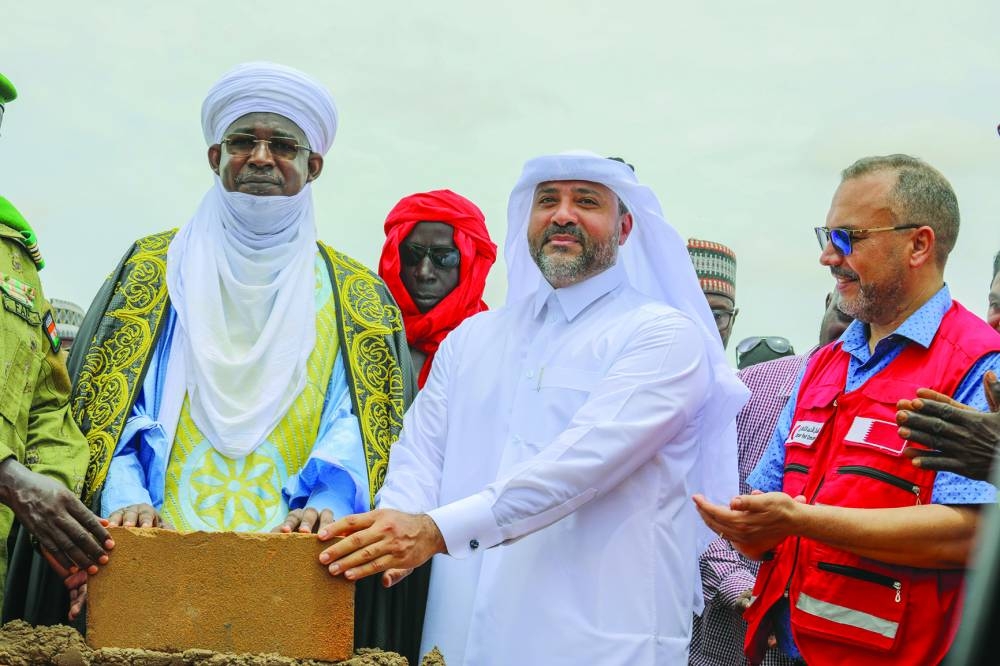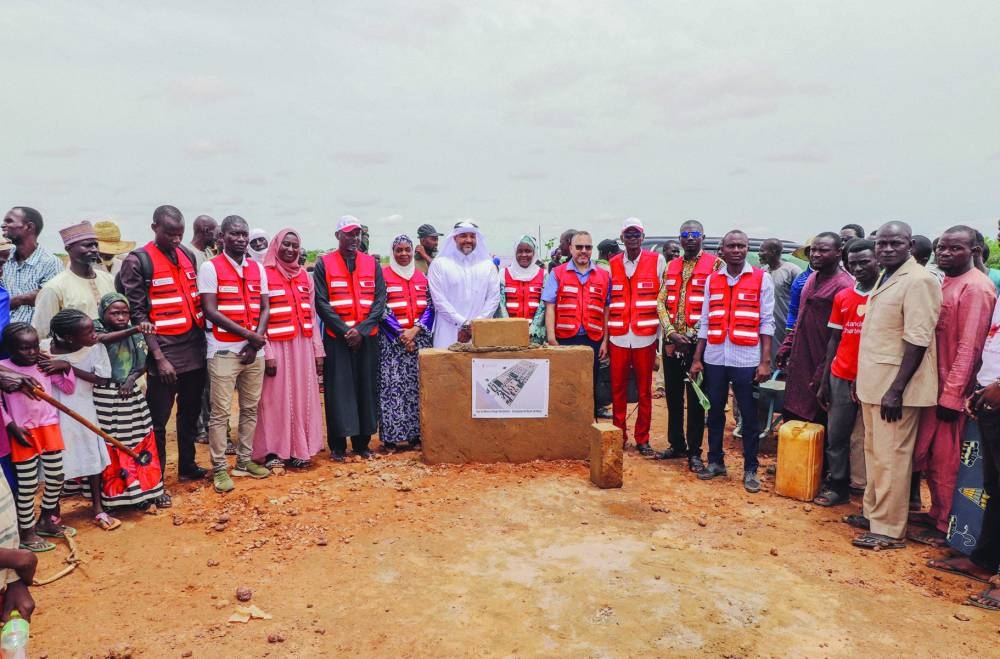Dr Mohamed Salah Ibrahim, director of Relief and International Programmes Division at Qatar Red Crescent Society (QRCS), has made an official visit to Niger, to inaugurate new shelter projects, inspect ongoing development projects, and to hold co-ordination meetings with senior government officials and representatives of UN and humanitarian organisations.
Accompanied by Rachid al-Krouty, head of QRCS’ representation office in Niger, Dr Ibrahim inaugurated a new residential village for poor families in Koutoukale Koira Tegui. It consists of 33 homes, one borehole, one mosque, one two-classroom school, and basic infrastructure.
During the opening ceremony, Dr Ibrahim emphasised the successful partnership between QRCS and the government of Niger, commenced in 2005 as a representation of the strong brotherly relations between the people of Qatar and Niger.
According to him, QRCS has diverse interventions in Niger, in keeping with the national development plans, including shelter, water and sanitation, health, livelihood, food security, and disaster response.
“With the reopening of QRCS’ representation office in Niger last year, its humanitarian activities were revived after a three-year halt,” said Dr Ibrahim. “This year, the office implemented numerous projects, including the digging of 60 boreholes in Tillaberi, Dosso, Tahoua, and Zinder; construction of two residential villages, one already opened and the other in the Filingue department; performance of more than 1,500 cataract surgeries; treatment of more than 117,000 school students with eye diseases in Niamey and Kollo; distribution of 3,550 food baskets under Ramadan Campaigns 2023 and 2024; distribution of the meat of 448 Adahi sacrificial heads of cattle during Eid-al-Adha 2024; and funding of 105 income-generating projects for 790 poor families”.
Dr Ibrahim revealed plans to launch several new projects in the coming few days. The list includes starting 53 income-generating enterprises for 163 families in Niamey and Tillaberi, deploying five ophthalmology clinics in Dosso and Maradi, and distributing 1,575 food baskets in Niamey.
On day two, Dr Ibrahim laid the foundation stone for Al-Amal Residential Village in Koure, which consists of 47 fully furnished homes, one mosque, one four-classroom school, one health centre, one borehole, footpaths, and solar panels.
After that, the QRCS delegation made a field tour to inspect the progress of a number of projects undertaken by QRCS’ representation office, including income-generating projects (handicrafts, sewing, fishing and livestock breeding) and an eye disease treatment project for school students at the teaching hospital in Niamey.
Official meetings were also held with the deputy director of the Office of the President of Niger, the Minister of Interior, the Minister of Hydraulics and Sanitation, co-ordinator of the United Nations Office for the Co-ordination of Humanitarian Affairs (OCHA) in Niger; and head of the office of Turkiye’s IHH in Niger.


